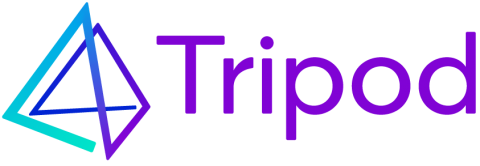Needs assessment for Organising for Power Programme
PART 1 – The Process
Before we go full swing in designing and delivering our series of training on campaigning and organising skills for our Organising for Power Programme, we wanted to make sure that what we had in mind – THE KEY- is actually what is needed on the ground – THE LOCK.
This can be done through a process called, needs assessment. We found this definition of needs assessment from the University of Minnesota website:
“Conducting a needs assessment is a systematic process of investigating a population or community to assess the state of current resources such as knowledge, abilities, interests, and approaches pertinent to the focus of the needs assessment such as a concern, aspiration, or intention. A needs assessment is a focused examination of the way things currently are and the way things can or should be in order to fill a gap in services.”
Through this we wanted to ensure that the Organising for Power programme fully builds on the work already being done in this movement in Scotland, tailors its trainings for maximum relevance and builds ownership over the programme itself among potential participants. We wanted to design the programme to be as relevant as possible to the participants’ specific needs and based on a thorough understanding of their context.
In this first of 2 blogs we want to share with you the process we followed in conducting a needs assessment. As so-called experts in training and facilitation, we find it useful to document, reflect upon and learn from how we design processes that facilitate analysis and decision making in a group. A well designed process is key to successful outcomes to any workshop, training or meeting. We hope you’d find this useful.
So there are several ways on how needs assessment can be done -interviews, surveys, focus-group discussions and community meetings. We decided to have a one day consultation workshop where we can have all the relevant people we wanted to talk to in one room.
We gathered together organisations and grassroots groups working with refugee/migrants’ rights and advocacy services and/or tackling racism and xenophobia in Scotland. It was great meeting 18 people representing 9 organisations all fired up in this movement in 1 room for the first time. They came with their passions, critical analysis, rage, sense of humour and camaraderie to make our first meeting worthwhile,memorable and in a way an ‘unofficial launch’ of the Organising for Power Programme.
How did the day go?
We used participatory methods to ensure that it won’t be a boring day and that participants become fully engaged in all the activities. The workshop followed a structured process that enabled participants to systematically prioritize the training topics and other support interventions they needed.
First,the process started with a context analysis where participants first identified the aspirations they have in relation to their work with refugees, migrants and communities of black, minority and ethnic people. This was done through a visioning exercise where the participants individually drew their aspirations on paper and then shared in groups.
After which they had the opportunity to critically analyse the bigger picture of racism and xenophobia in Scotland, exploring the core causes and consequences of the problem. Through brainstorming and writing on and sorting cards, participants identified 3 main problems related to racism in Scotland. These were then further analysed through a problem tree analysis exercise in 3 groups, designed to probe down to the underlying causes. Each group worked on one of the3 main problems identified.
Participants then examined their organisational capacities, the strengths and challenges they have in addressing the issues and problems they identified. Recommendations were also made on how to tackle these issues. Participants worked with their colleagues and prepared posters about their work which were posted on the walls. Everyone had the chance to go around the room to read and comment on the work of different groups. This became an opportunity for them to network with one another as they engaged in lively informal discussions about each other’s work.
They then identified gaps in the knowledge and skills they have to effectively tackle the root causes of racism/xenophobia and/or work for refugee/migrants’ rights. They did this by individually filling in a questionnaire. The first part of the questionnaire asked about the relevant experiences, knowledge, skills and qualities they already have that have helped or would help them in this work. The2nd part asked about what knowledge, skills and attitudes they wish to learn and develop more. It also asked about other support they need.
The participants then gathered in groups to identify the priority training topics and other support interventions needed bearing in mind the results of the previous exercises, addressing the barriers they face and the gaps in their capacities to tackle these barriers.At the end of the day we considered different options for the format of the residential training aspect of the programme that are most feasible and practical for participants to attend.
The feedback from the participants on the needs assessment workshop was very positive in terms of the participatory way it was conducted and with them being empowered to define the agenda and priorities for the programme. Tripod feels such one day needs assessment workshops would be very helpful for other programmes to that their design is as relevant as possible and that accountability to participants is strengthened from the very beginning. Investing in such an event will save resources in the long run as programme activities are more efficiently focused on and matched to participants needs and realities.
In the next blog we will share with you the results of this consultation workshop.
